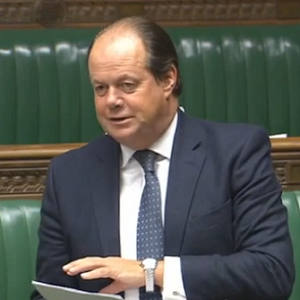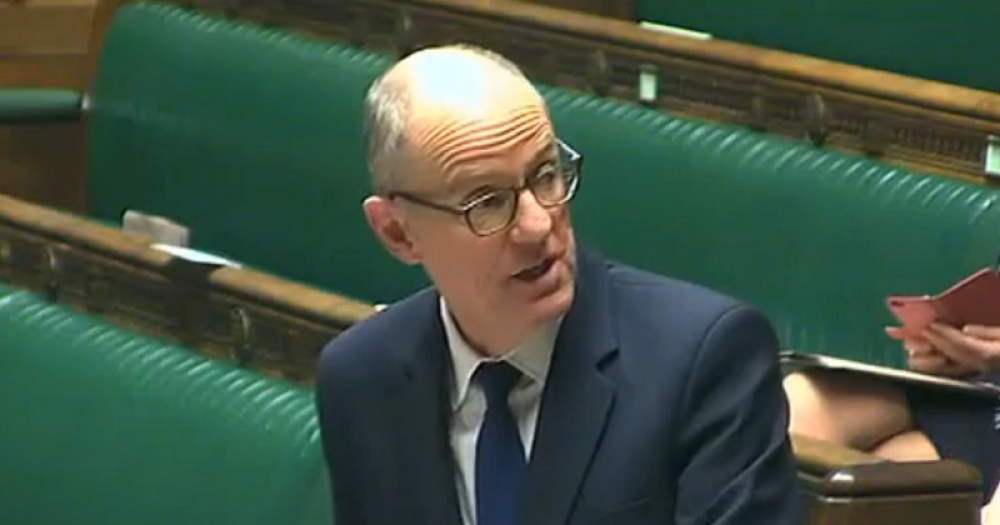The government needs “more information and data” before it can make a decision on admissions of summer-born children, the schools minister has said, more than a year after announcing his intention to change the admissions code.
Nick Gibb told MPs on Monday night that Department for Education analysis of the potentially “high” cost of a change to the admissions code was based on limited information about why parents may defer a school place.
In September 2015, following a long campaign by parents who say current rules on school admissions put pupils born between April 1 and August 31 at a disadvantage, the government announced its intention to amend the rules.
At the time, Gibb said he wanted to allow summer-born five-year-olds to begin school in reception class if they deferred taking their place, rather than being forced into year 1 as per the current rules.
First indications show that the costs are high. These are, however, based on a limited amount of information.
But concerns about the financial impact on the policy, which could affect both early years and post-16 providers, appear to have delayed a final decision.
Gibb said he understood parents’ “frustration” as they wait for the change, but said it was “important” to consider how to implement the policy.
He said he wanted parents to have the necessary information to make “informed decisions” about their children’s education, but he was keen to avoid giving parents “an unfair advantage” in the admissions system which would allow them to apply twice to their preferred primary school.
Stephen Hammond, the MP for Wimbledon, said the government’s own research had revealed that two thirds of summer-born children failed to meet minimum standards in reading, writing, speaking, maths and other developmental skills at the end of their first year in school.

“Children who are the youngest in the year are disproportionately likely to report bullying and lower levels of self-confidence, and their overall satisfaction at school is significantly reduced,” he said.
“There has also been a higher incidence of diagnoses of attention deficit hyperactivity disorder and autism among summer-born children.
“Most of the experts I have met believe that most of those diagnoses are the result of the child struggling from being placed in school too soon, being comparatively immature and struggling developmentally, rather than their suffering from the condition.”
Gibb said the government had “already made improvements to support summer-born children” by amending the admissions code in December 2014 to make it clear that all decisions must be made in a child’s best interests and take into account the wishes of parents.
But he admitted that this rule is not always followed, with some children still forced to join their school in year 1 as opposed to reception.
Following the announcement last year, many admissions authorities have already changed their policies ahead of a concrete decision by the government.
Gibb said this news was “very welcome”, and praised authorities which had “become more flexible in agreeing to parental requests”.
The government is now collecting further information to help decide next steps.
Gibb said: “In particular, we have carried out work on the likely cost of full implementation. First indications show that the costs are high. These are, however, based on a limited amount of information on why parents might choose to defer their summer-born child’s admission to school.
“This is why we are starting to collect more information and data before making a decision on how to roll out any changes.”








I think this sounds about right for the UK.. Until they realise august borns having just turned 4 is too young too start school and more fail as a result in later life having been affected by bullying & false diagnosis of sens thus affecting their confidence nothing will change… These summer borns surely cost local authories more needing statements & the government more because they cannot pay high amount of taxes? And the need for therapy via nhs?? I will home educate my son after a dreadful heartbreakingly hard start in his school- I too am August born and this horrible system failed me…these children cannot go into school with peers almost a year older- simple! the reports reflect their struggles. Their suffered self confidence reflects their struggles. Why start children at school having just turned four anyway? Its disgusting. Start then when they are 5 !!!!!
How difficult is it to sort out? They’ve been talking about it for years.
I have a winter born girl currently thriving in school. Her brother is due to start school next September and is developmentally nowhere near where his sister was at the same point. He has growth and speech issues that have left him roughly a year behind average. Couple that with an August birthday and he’ll be approximately 18 months behind the average school starter. Medical professionals assure us these issues will resolve in the long term but that he may struggle in his first few years.
So given that why can I not just inform the admissions people that he will start school the year after (when he’ll be 7 months older than the average starter rather than 6 months younger)? It seems I probably will win the right to delay, as we have written proof on growth issues and the school support it, but my local authority only offer this in exceptional circumstances.
Is it all about the 15 free hours of pre-school entitlement? As it is summer borns get 9 months less paid hours than their autumn born peers. Surely that is unfair?
Nick Gibbs forgets that the decision on *when* the child starts school is already absolute parental right. The admission authorities can only make the decision on *what age group* this child must be placed and that decision, legally, must be made in that child’s best interest. No other considerations are a valid reason why that child is made to miss a whole year of schooling. Everyone, including Nick Gibb, seems to agree that missing that much of school is detrimental to any child, not just in terms of academic attainment, but also socially and emotionally.
So, last night showed that EFFECTIVE Compulsory School Age in this country for summer born children is 4. I just want to ask one question: Is changing such an important parameter of children life without any wider consultation lawful?
The only extra cost I can see is maybe nursery care. On the other hand society will hopefully get a happier, more balanced, more skilled individual. It seems an easy way to improve school results to me.
It’s crazy to delay making this common-sense decision because of concerns around short-term costs, when the long-term costs of the current flawed system are clearly so high.
There’s no obligation for parents to send their children to school until the term after they turn 5. So why this LEA fuss about making them skip Reception if they do? Ridiculous. There’s also no issue at all about applying for primary school twice if you simply let them apply once for a Reception place for a start at age 5! The current system forced parents to do it all a year early, then battle the LEAs in a complete postcode lottery where some are supportive and others give a blanket no. The only reason for applying twice is this ridiculous system!
1. Re: “keen to avoid giving parents “an unfair advantage” in the admissions system which would allow them to apply twice to their preferred primary school.”
Easy fix – Parents must make their decision about whether to apply for a CSAge place prior to the April 16 date when school places are allocated.
2. Re: “Gibb said the government had “already made improvements to support summer-born children” by amending the admissions code in December 2014 to make it clear that all decisions must be made in a child’s best interests and take into account the wishes of parents.
But he admitted that this rule is not always followed, with some children still forced to join their school in year 1 as opposed to reception.”
Completely nonsensical. If the Code was meant to stop children being forced to join school in Year 1, then why wasn’t it explicit in saying this? Moreover, why did the DfE leave ANY ambiguity there at all?
One question the DfE has never answered is this:
In which circumstances does it think it WOULD be in a child’s best interests to miss a year of school??
3. Re: cost.
The cost of current negotiations between parents and admissions authorities right now is huge (emails, letters, solicitors, educational psychologists, complaints processes etc.). The cost of SEN diagnosis and management throughout a SB child’s life when they are forced to start school early is what’s “huge”. I trust the government will also be factoring in the long-term costs of summer born behavioural management through school, exam re-takes, repeated A-level years, repeated Reception years, lower academic attainment, lower wages, mental health problems etc. etc. when investigating this.
When we are putting money ahead of the best interest of a child we need to ask how can this be right?
My 8wk premature twins were born in July instead of the middle of September. This means at 4 they are being forced into attending Reception in which they will not spend one day as a 5 year old. Our other option is to send them at 5 leaving them even more disadvantaged by missing a crucial year of schooling where the foundation of reading, writing and maths is laid by being forced into Year 1.
When you offset the cost of the additional teaching support they will required or the developmental immaturity that is often misdiagnosed as special educational needs, the damage it does to a child’s confidence to feel that they are never as clever as they are less developmentally ready, smaller so it destroys their love of sport, higher rates of bullying, depression, suicide, labelled an underachiever, lower rates of success at gcse, fewer attend university and ultimately contribute less to summer borns being successful. What is the cost of that year really? What figure do you put on your child’s future?
I think if your main concern is inflated costs and parents having two chances of applying to a preferred school you are completely missing the point. I just want my children to have a chance at a life where their passion for learning and confidence isn’t annihilated by an educational bureaucracy that cares more about numbers than about people.
Children already start formal education too soon in this country. The years 5-6 should be Kindergarten with formal education starting at 7. That doesn’t mean, as some suggest, that Kindergarten years would be mere ‘play’. Well-constructed Kindergarten prepares pupils well for formal education. It would also go a long way to soften the negative effects on summer born children of starting formal education too early: pupils would begin compulsory school at age 5 irrespective of what ‘Year’ they would ultimately end up in.